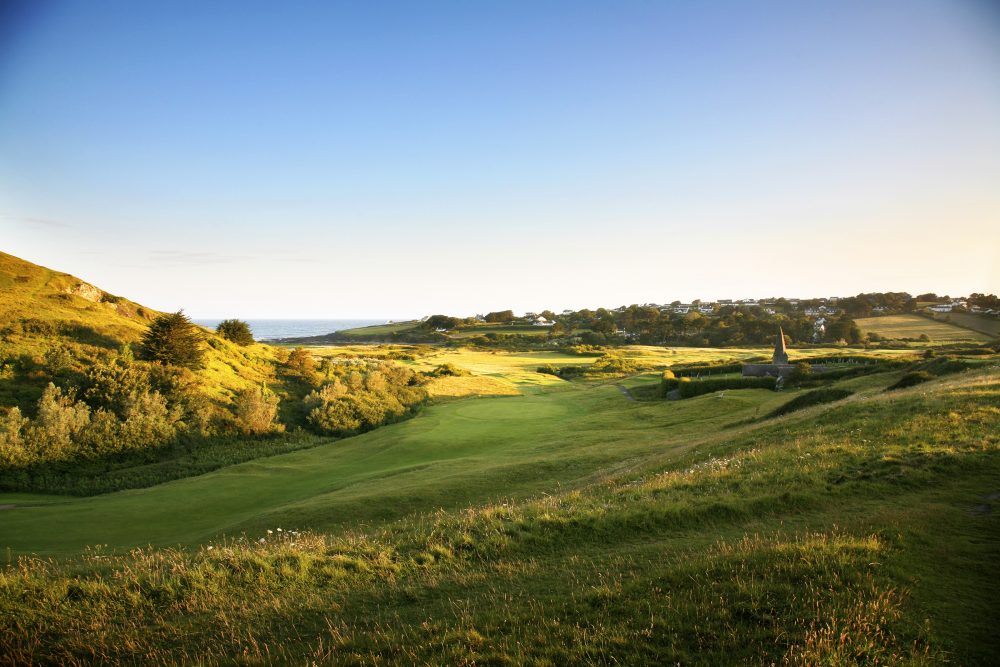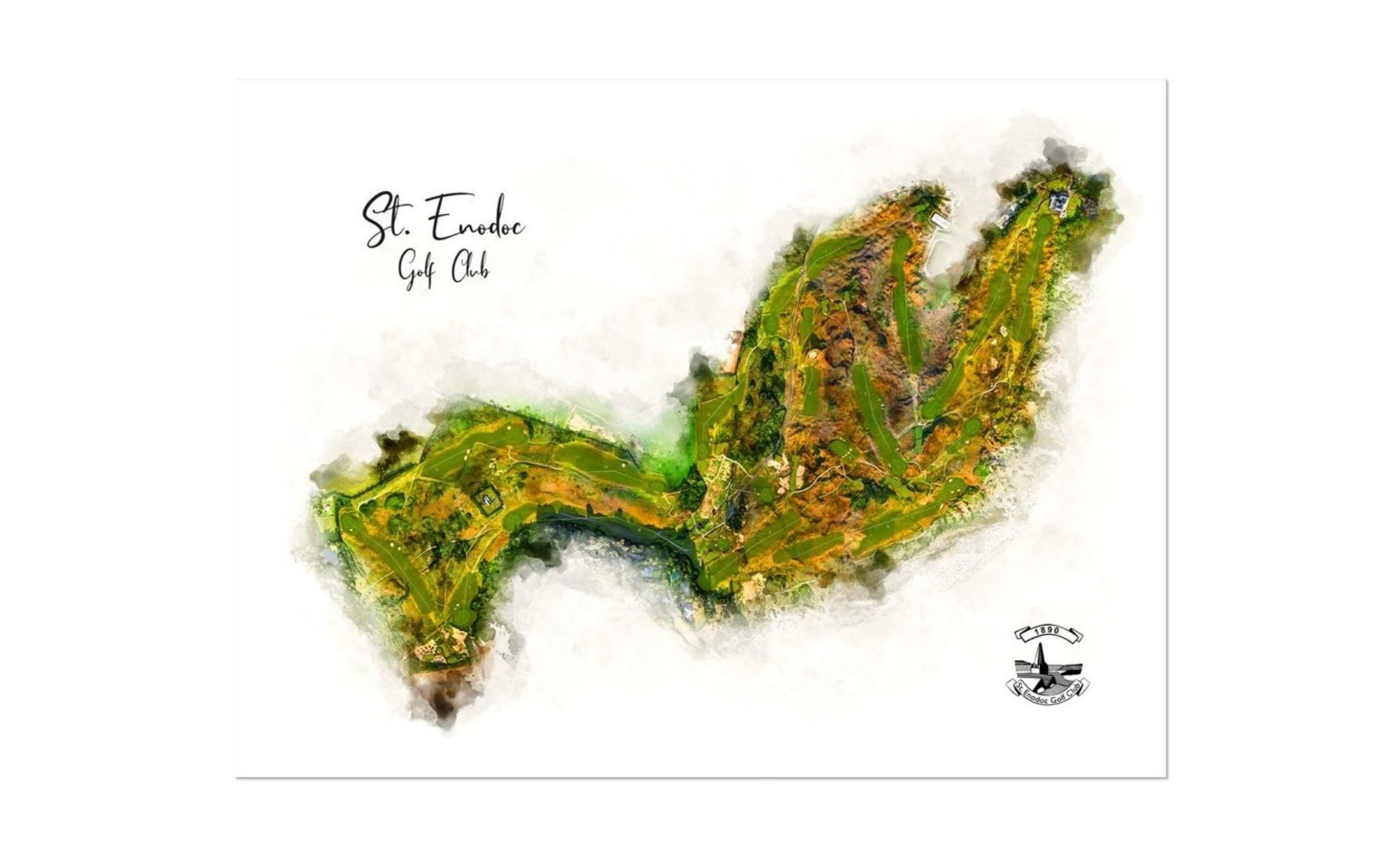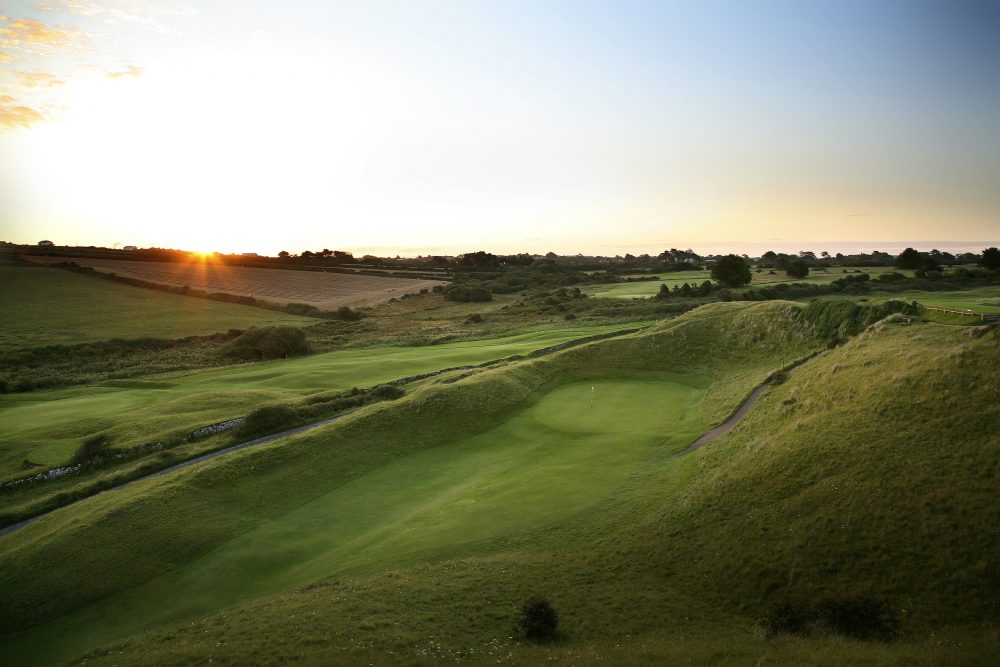St Enodoc Golf Club

Overview
Himalaya bunker is the show stopper here - a forty-foot high dune demands to be hit over or around to access the green. Its a rule breaker and head scratcher but you cannot help but love the challenge posed.
The famous poet John Betjeman is buried in the churchyard. His poem, 'Seaside Golf' was penned after a birdie on the 13th.
Tom Doak recommends golf architecture students pay attention to the routing. See the video tab for more from Mr. Doak.
Golf Course Review
St Enodoc Golf Club is a James Braid design that dates from 1890. With spectacular views over the Camel Estuary to Padstow and the Atlantic Ocean, this staple of the Top 100 lists is the anchor to any Cornwall golf getaway. The Church Course at St Enodoc Golf Club is one of the West Country's finest links and is counted by many to be among the very best in the world.
St Enodoc Golf Club History
Initially, golf was played around the church of St Enodoc and down to Daymer Bay in 1888. The following year, more holes were routed in the massive sand dunes to the south nearer Rock. In 1890, the St Enodoc Golf Club was formalised and established being played over a 27 hole course.
In 1907, James Braid arrived and found 18 holes. Essentially the 18 hole course was located where holes 1-9 and 16-18 now sit. In 1922, he revised his previous layout and added the present 8th, 11th, and 12th holes.
In 1930, Tom Simpson was called in and left us the current par 3, 5th hole. It is the only green that has rear bunkers. With the stream in front, this is no doubt paying homage to the strategic Eden at St Andrews. Tom Simpson revered the Old Course and would have known the strategic principle well.
In 1937, James Braid would return to reroute the land around the new clubhouse. The modern 1st, 17th, and 18th holes date to James Braid in 1937.
In essence, St Enodoc Golf Club is a James Braid links golf course of the highest caliber. The other bright spot is the par 3, 5th from Tom Simpson.
Architectural Highlights
The 6th is perhaps the most famous bunker after Pandy, Road, or Hell. The mountainous dune is aptly known as Himalaya and is purportedly the largest in Europe.
The 10th is another which divides opinion but one thing everyone does agree on is: it is difficult. At 450 yards, it is quite possibly the hardest yard for yard par 4 in golf. In all, St Enodoc is not a long course at just 6557 yards. However, a par of 69 does little to help comfort those totting up their scores at the end of a round.
Perceived Flaws
Most detractors will cite the run of holes from 12 to 14 as the club's weakest stretch. The holes themselves are not terrible but taken in context, just not as strong as the others. Perhaps it's safer to say they suffer because of the brilliance of the rest. The run of holes from 11-14 on St Enodoc Golf Club are known as The Parish Holes.
Holywell Course
The relief nine hole golf course at St Enodoc Golf Club is called the Holywell. Beside the 12th hole is the remnants of St Enodoc's Holy Well where he supposedly baptised his converts. The course is maintained to a high standard and is worth a go after you've given the main course a go. The 16th is said to be the toughest hole of the 36 on the property, including those on the Church Course. Holes 5-12 are from 1982 with some of the remaining holes being from James Braid's original course. The course is made up of nine par 3's and 9 par 4's with a total yardage of just over 4000 yards.
St Enodoc Golf Club Reviews
Go deep with Evalu18's dive into the incredible 4th hole on the Church Course.
Read Golf Club Atlas' review of St Enodoc.
Take Sean Arble's tour of St Enodoc Golf Club.
Study Clyde Johnson's analysis of the 4th hole.
St Enodoc Golf Club Art & Photography
Buy St Enodoc GC artwork or purchase Kevin Murray's photography.

St Enodoc Golf Club - Videos
golfing world's expose of st enodoc golf club
architect tom doak discusses st enodoc golf club
Watch a speed knowledge video on st enodoc golf club
st enodoc golf club official promo video

Featured Architect: MacKenzie, Alister
As taken from his book, Golf Architecture, Alister MacKenzie felt the following were essential: The course, where possible, should be arranged in two loops of nine holes. There should be a large proportion of good two-shot holes and at least four one-shot holes. There should be little walking between...











